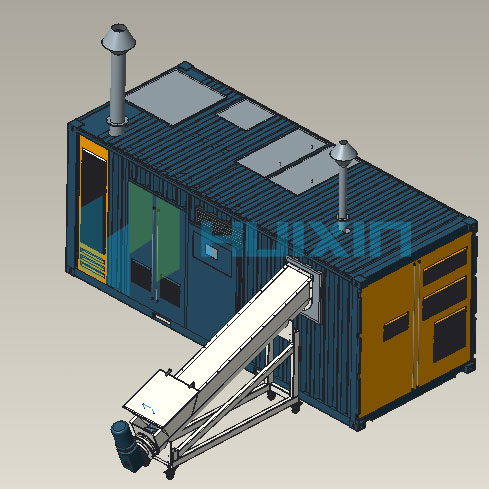Reducing Environmental Impact: The Role of Plastic Waste Incinerators
2023-10-17
Introduction
Plastic pollution has become a global environmental crisis, and finding sustainable solutions to manage plastic waste is a pressing concern. One technology that has gained attention in recent years is the plastic waste incinerator. In this blog, we will explore the role of plastic waste incinerators in waste management, their benefits, challenges, and the importance of responsible implementation.
Understanding Plastic Waste Incinerators
Plastic waste incinerators, also known as waste-to-energy plants, are facilities designed to burn various types of plastic waste at high temperatures. The process not only reduces the volume of plastic waste but also generates energy in the form of heat and electricity. Here's how they work:
1. Collection and Sorting: Plastic waste is collected and sorted to remove non-combustible materials like metals and glass.
2. Preparation: The sorted plastic waste is shredded into smaller pieces to facilitate combustion.
3. Incineration: The shredded plastic is burned at extremely high temperatures in a controlled environment, typically within a combustion chamber. This process breaks down the plastic into gases and residues.
4. Energy Generation: The heat generated during combustion can be used to produce steam, which drives turbines to generate electricity.
Benefits of Plastic Waste Incinerators
1. Waste Reduction: Plastic waste incineration significantly reduces the volume of plastic waste, helping to alleviate landfill congestion and related environmental issues.
2. Energy Generation: The heat generated can be harnessed for electricity generation, contributing to renewable energy production.
3. Greenhouse Gas Reduction: Properly operated incinerators can reduce the emission of greenhouse gases compared to landfilling, as methane emissions from landfills are mitigated.
4. Resource Recovery: Some incineration facilities are equipped with technology to capture valuable metals and materials from the ash residue, promoting resource recovery.
5. Waste-to-Energy: Plastic waste incinerators are a part of the waste-to-energy sector, which can play a role in reducing dependence on fossil fuels.
Challenges and Considerations
While plastic waste incinerators offer several advantages, they also come with challenges and concerns:
1. Air Emissions: The combustion process can produce air emissions, including pollutants and particulate matter. Proper emission control and monitoring systems are essential to minimize environmental impacts.
2. Residue Management: The ash residue left after incineration may contain hazardous materials. Safe disposal or treatment of this residue is crucial.
3. Resource Efficiency: It's important to maximize resource recovery from the ash residue and ensure that valuable materials are not wasted.
4. Community Concerns: Communities near incineration facilities may have concerns about air quality and health impacts. Engaging with stakeholders and addressing their concerns is essential.
5. Regulatory Compliance: Strict regulations and permits are necessary to ensure the safe and environmentally responsible operation of incinerators.
Conclusion
Plastic waste incinerators have the potential to play a vital role in addressing the plastic pollution crisis and advancing sustainable waste management practices. When properly designed, operated, and regulated, they can reduce plastic waste, generate clean energy, and contribute to environmental protection. However, responsible implementation, transparency, and ongoing innovation in waste-to-energy technologies are essential to realizing the full potential of plastic waste incineration while minimizing its environmental footprint. It's imperative that we continue to explore a range of waste management solutions, including recycling and reduction efforts, to complement the role of incineration in a comprehensive waste management strategy.



